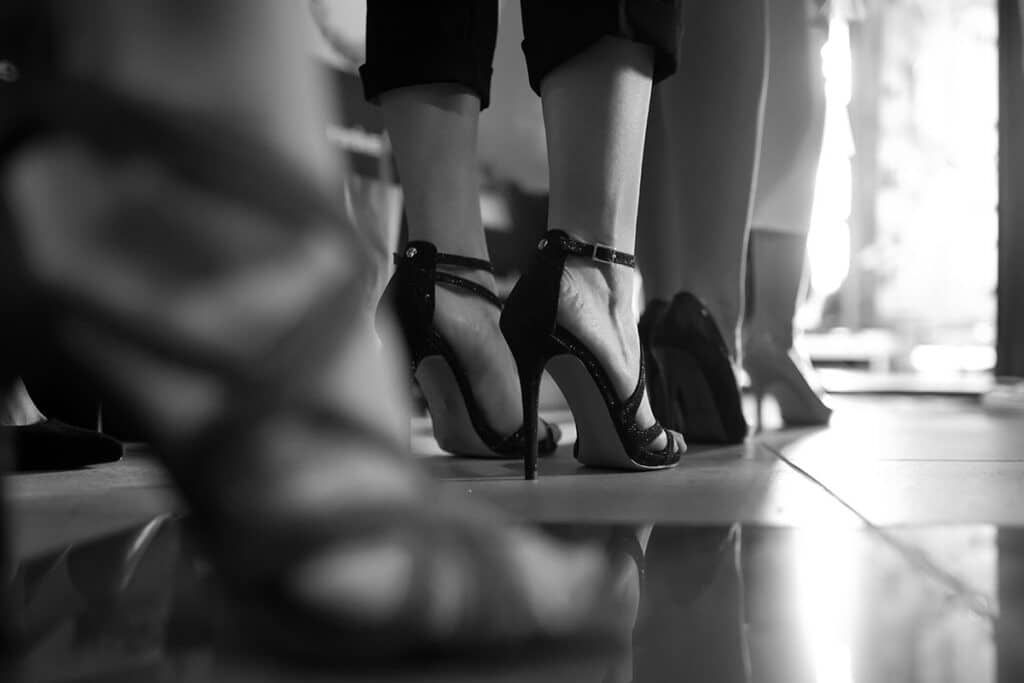Supermodels with Acne: Dealing with Imperfections
No Comments • Uncategorized • By Melissa
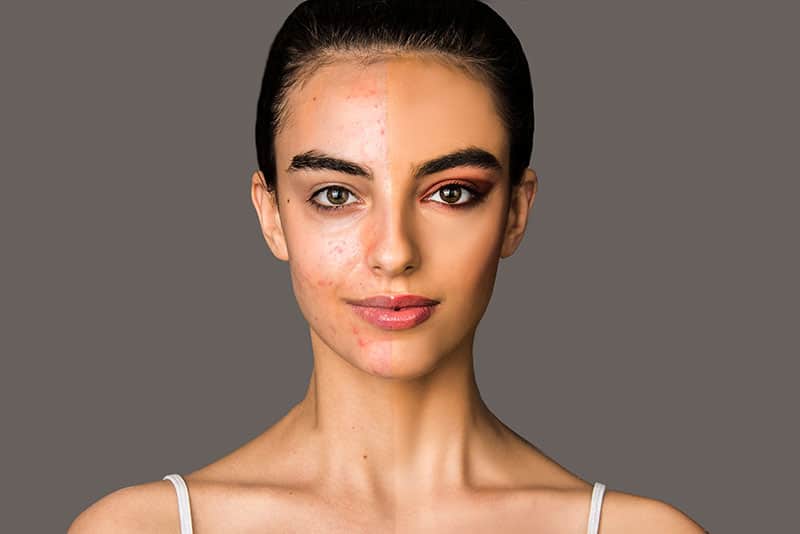
As a modelling photography and support agency, we often get asked whether acne will impede an aspiring model’s success in the modelling industry. While it’s well-known that models are expected to be visually “perfect”, the reality is that all of us – even supermodels – have imperfections. It is how we deal with these imperfections that will decide how much success we see in the world of modelling.
Below, we take a look at some of the top supermodels with acne, and how they combat it.
What is Acne, and Why Do We Get It?
First, let’s discuss what acne is.
Acne simply refers to spots, or pimples, on the skin. These can range in severity; some people have a small cluster, while others have blemishes all over the face. Acne can also be found anywhere on the body, but it is usually located on the face, back and chest. Acne can also cause oily skin which is sometimes painful.
There are 6 main types of spots; whiteheads, blackheads, papules, pustules, nodules and cystic acne. Some of these can cause acne scars.
Acne can be caused by many things, but it is most commonly related to hormones and genetics. Hormonal acne tends to kick in when our hormones change in our teens. But while acne is typically associated with teenagers, acne can affect you at any age; adult acne is surprisingly common.
There is no evidence that poor hygiene or diet causes acne.
Acne is extremely common; around 95% of people aged between 11 and 30 are affected by it at some point.
Acne can’t be cured, but it can be controlled with treatment.
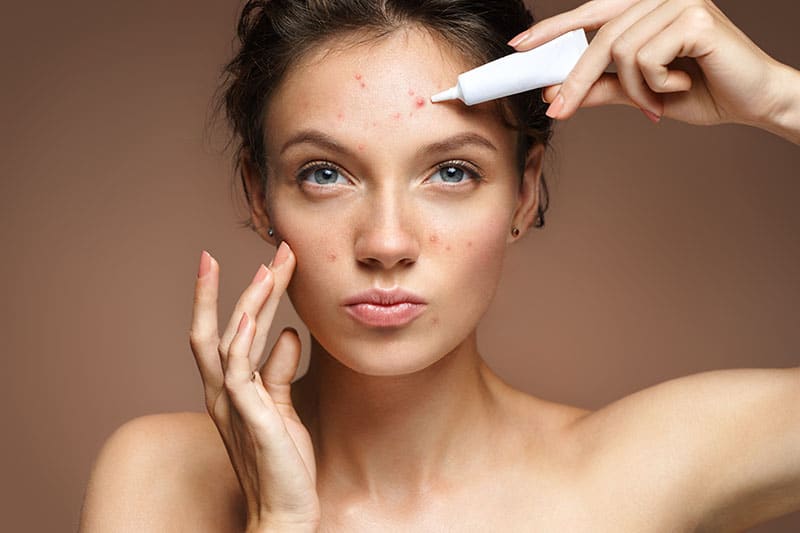
Coping with Acne
Acne can have an extremely negative impact on us. While it is typically not a damaging health condition, it often affects people mentally and has been known to cause self-esteem issues, anxiety and depression.
For models, this is exacerbated by working in an industry that demands perfection. There is nowhere to hide when beauty shots are being taken, and paparazzi are always attempting to take photos of models looking less-than-perfect.
So how do supermodels with acne cope?
Supermodels and Celebs With Acne
- Kendall Jenner
- Taylor Hill
- Chrissy Teigen
- Ruby Rose
- Lorde
- Rihanna
- Bella Thorne
- Justin Bieber
- Emma Stone
- Katy Perry
- Lili Reinhart
- Lucy Hale
- Miley Cyrus
- Mindy Kaling
- Selena Gomez
The Secret to Clear Skin
So what is the secret to clear skin? Well… sadly, there isn’t one. But while acne isn’t curable, there are things you can do to help manage the condition.
Have a Good Skincare Routine
There is a common misconception that acne is due to poor hygiene, but this isn’t always the case. While blemishes can be caused by bacteria from phones, reactions to pillowcases, or improper cleansing, most acne is hormonal.
Having a good, consistent skincare routine is a great way to help prevent external or environmental changes from having a negative impact on your skin.
It’s a good idea to wash the face in the morning with warm (not hot) water to remove oil and dirt that accumulates during the night. Follow up with a gentle moisturiser and SPF. It’s a good idea to think about adding a serum to your daily skincare routine; Vitamin C is a good ingredient for protecting and brightening the skin, while ingredients like Niacinamide and Hyaluronic Acid help retain moisture.
In the evening, a double cleanse is a good way to keep skin clear. The first cleanse is to remove make-up and SPF, while the second gives the skin a deep clean and preps it for skincare absorption. Follow with a serum (Retinol is a great ingredient, but requires time to adapt to; speak to an aesthetician or dermatologist for advice if you’re unsure) and nighttime moisturiser.
Try to resist the urge to clean your skin more than twice a day. Doing so can strip the skin of good oils and protective layers, leaving skin dehydrated and sensitive.
There are some brands that are catered specifically to acne sufferers; ProActiv is made to help alleviate breakouts and tackles bad skin.
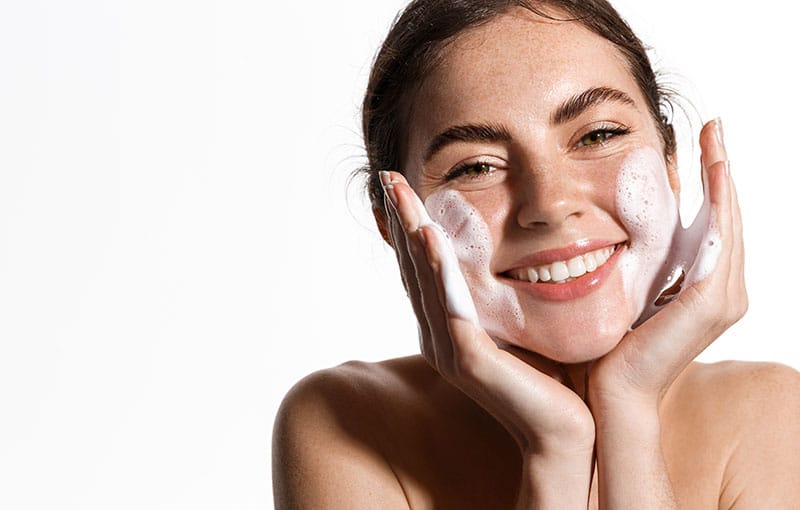
Make-Up
Make-up is a tried and trusted way to cover blemishes. While it won’t help to cover the texture that spots can often create, it will help to even out the skin tone and make them much less pronounced. Models with acne rely heavily on concealer and foundation to help them mask their blemishes.
Unfortunately, models can often get acne due to the heavy amounts of make-up they are required to wear for work. Red carpet events, photoshoots and runway work all require heavy make-up that can result in unhappy skin. That’s why having a good skincare routine will really help undo and prevent some of the damage. Always talk to your make-up artist beforehand if you can so they understand your skin’s requirements; they can often swap in products that are more suitable for sensitive, acne-prone skin. It’s a good idea to talk to your makeup artist during application so you can learn about the best products and make-up application techniques for your skin type. You should also inform them of any skin insecurities you have so they can pay extra attention to these areas and help you feel more comfortable and confident.
Try not to pick your blemishes as this can result in scarring. Try to go makeup-free on your days off to give your skin a chance to breathe. Always ensure make-up is properly removed before bed.
Photo Editing
Ever wondered why many supermodels appear to have perfect skin in advertisements despite having spoken out about having skin issues? It’s all down to post-photoshoot editing. Nearly all advertising campaigns use photo editing, or PhotoShop, to perfect photos. It’s become even more mainstream and is frequently seen on social media platforms like Instagram. Filters and apps have the ability to clear skin with a single click of a button. Don’t take everything you see online at face value; nowadays, we are bombarded with imagery that isn’t true to real life. It’s important not to compare yourself to the heavily edited images you constantly see online.
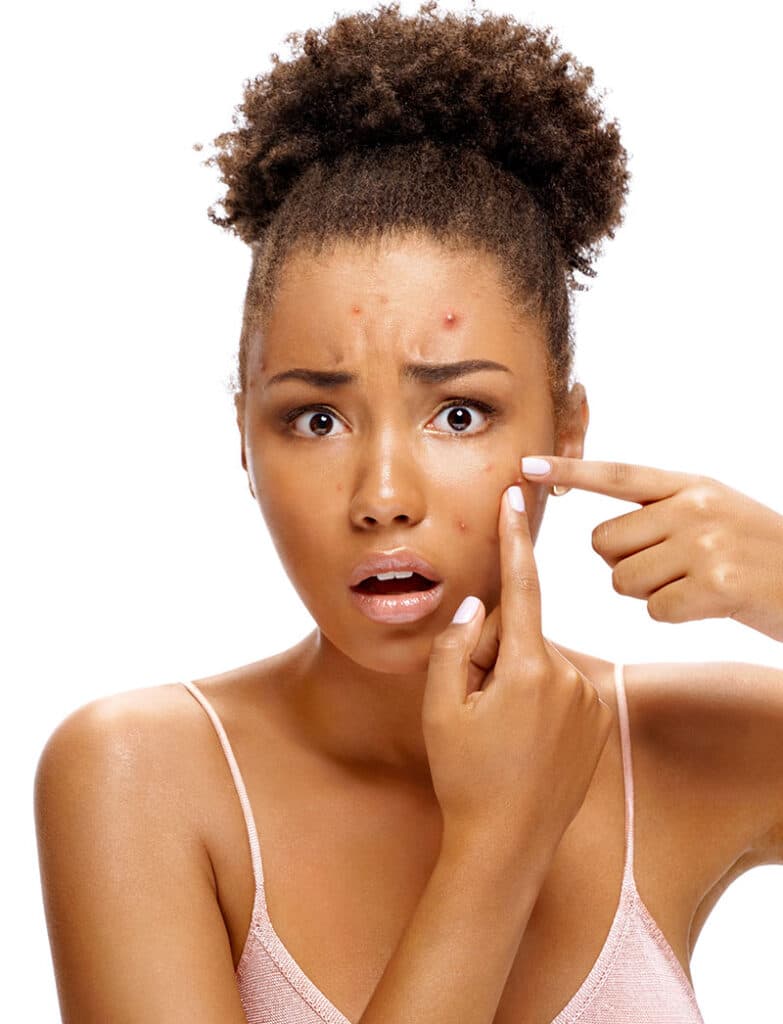
Medicine
Sometimes, when acne is really bad, a doctor or dermatologist may prescribe you a cream or medicine to help reduce it. Accutane is a popular acne treatment.
If you have mild acne, a pharmacist may be able to help you. But if it’s more severe and you can’t get control of it, it’s best to consult a doctor.
Benzoyl peroxide is another common ingredient found in acne-reducing zit creams. This can bleach clothing though so be careful how you apply it.
Sometimes, antibiotics or stronger creams may be required that can’t be bought without a prescription.
Diet
While diet isn’t the main cause of acne, a bad diet filled with oily foods, alcohol and takeaways can increase your skin’s proclivity to blemishes.
Have a diet filled with plenty of fresh fruits and veg to ensure your body (and skin) is getting all the nutrients it needs. Your skin is usually the last organ to receive nutrients, so ensure you eat enough.
Drinking lots of water can also help keep the skin hydrated.

Reduce Your Stress
Stress can cause a myriad of issues in our bodies, and skin is no exception. Stress is caused by a hormone called cortisol, which tells glands to produce more oil, which can result in spotty skin.
Take time for self-care and be proactive when you sense you are stressed. Keeping a journal can often help you pinpoint areas of stress in your life. Long-term stress can be very bad for your overall health and wellbeing.
If you’re really struggling, don’t be afraid to seek professional help.
Go to a Professional
There is no need to suffer alone if you are really struggling with your skin condition. Plenty of help is available from pharmacies, doctors, aesthetic practitioners and dermatologists.
Don’t follow anything you see online unless it is verified by an expert; there is a lot of false information that is created to take your money, and this “advice” and “quick fixes” may even result in worse skin.
Remember; we all have skin struggles at some point in our lives and they are nothing to be ashamed of. While they can make us feel self-conscious, it’s important not to let any skin imperfections affect your life too much; if this is the case, please talk to a doctor who may be able to refer you to a skin specialist to get it sorted.
It’s also important to remember that any changes you make to combat acne – whether that’s a change in diet, medication, or skincare – can take up to 3 months to see results.


